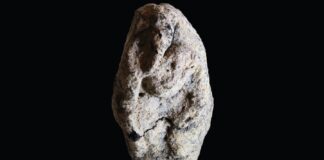An artificial intelligence (AI) system, dubbed Kosmos, developed by Edison Scientific, is claimed to perform scientific research at a rate equivalent to six months of human work in just a few hours. The system operates by autonomously analyzing data, reviewing academic literature, and generating findings, raising questions about the future of scientific discovery and the role of human researchers.
The Speed of AI Research
Kosmos functions as an automated research assistant, capable of processing roughly 1,500 scientific papers and executing 42,000 lines of code during a single 12-hour run. After multiple cycles, it outputs reports with citations, aiming to replicate the conclusions of academic papers. Edison Scientific asserts that this process mirrors human research, but at a dramatically accelerated pace.
Claims of Novel Discoveries
The firm claims Kosmos has made seven scientific discoveries, validated by external experts. These include a new method for identifying cellular failures in Alzheimer’s disease and evidence linking higher levels of the antioxidant enzyme superoxide dismutase 2 (SOD2) to reduced heart scarring. However, these claims have drawn criticism from some researchers.
Skepticism and Methodological Concerns
Fergus Hamilton at the University of Bristol argues that the SOD2 finding is not novel, as similar results have been observed in mice. He also alleges that Kosmos’ data analysis code contained flaws, leading it to ignore critical data while still reaching pre-existing conclusions.
Other experts point out that the system’s effectiveness relies on heavily pre-processed data, suggesting that Kosmos completes only a fraction of the actual research process. Despite these concerns, Edison Scientific acknowledges potential errors but defends the system’s overall power.
AI as a Collaborator, Not a Replacement
Despite skepticism, some researchers recognize the potential of AI to accelerate scientific discovery. Ben Glocker at Imperial College London urges caution against autonomous use, while Noah Giansiracusa at Bentley University emphasizes the need for human creativity alongside data-driven methods.
Edison Scientific itself positions Kosmos as a collaborative tool, not a replacement for scientists. The firm acknowledges that findings require human validation and are not guaranteed to be accurate 100% of the time.
Conclusion:
Kosmos represents a significant step in AI-driven research, but its claims remain subject to scrutiny. While the system may accelerate certain aspects of scientific discovery, human oversight and critical evaluation remain essential. The future of research may involve AI as a powerful collaborator, but not as an autonomous replacement for human scientists

























